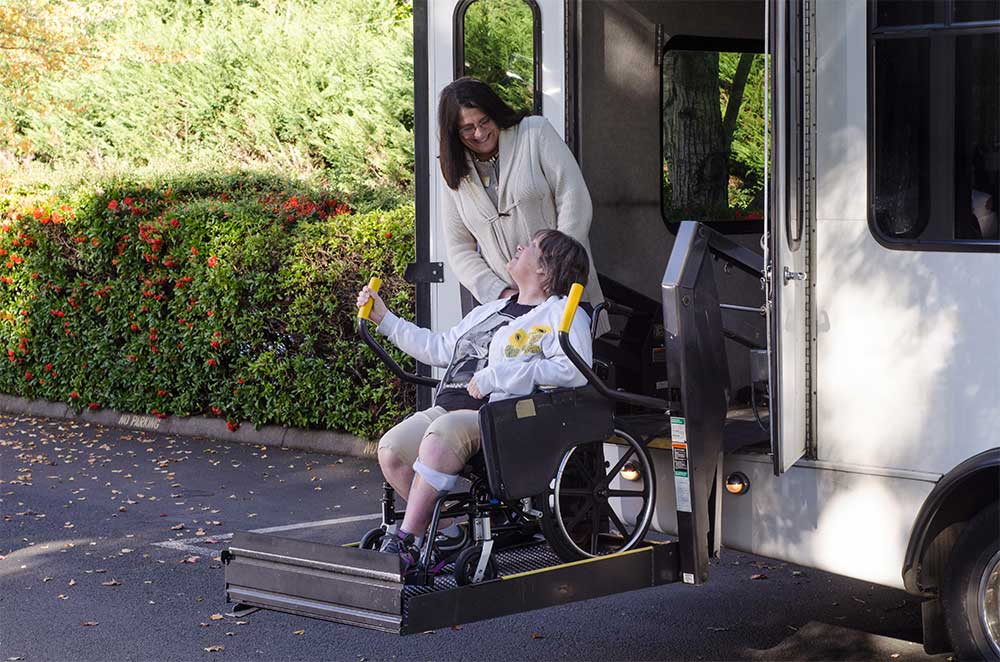Streamlined Medical Transportation: Making Health Care Accessible for All
Streamlined Medical Transportation: Making Health Care Accessible for All
Blog Article
Budget-friendly and Accessible Medical Transport Options for Every Circumstance
In the world of health care, the capacity to access medical services is critical, yet the difficulty of budget friendly and easily accessible transport can commonly prevent people from getting essential care. While some may have the ways to safeguard exclusive transport, lots of face challenges that make it hard to get to clinical consultations or centers. Nonetheless, the landscape of medical transportation options is evolving, supplying a variety of services tailored to numerous requirements and situations. By exploring specialized clinical transport services, area transportation programs, ride-sharing and taxi solutions, non-emergency medical transport, in addition to public transportation and paratransit options, people can find opportunities that deal with their particular requirements and ensure they obtain the care they require.
Specialized Medical Transportation Provider
Specialized clinical transportation services play an important duty in ensuring safe and efficient transportation for people needing specialized care during transit. These solutions accommodate patients with one-of-a-kind clinical needs, such as those requiring consistent monitoring, customized devices, or medical treatments during transportation. By using specifically complete automobiles and trained clinical workers, specialized clinical transport solutions guarantee that patients obtain the required treatment while being delivered between health care centers, homes, or other places.
One trick element of customized medical transport services is the concentrate on patient convenience and safety. Medical transportation teams are educated to take care of various clinical problems and emergency situations that may develop during transportation, offering a greater degree of care than conventional transport alternatives. Furthermore, these solutions commonly use door-to-door assistance, reducing the anxiety and pain that people may experience throughout transfers.
Community Transportation Programs
Having actually dealt with the crucial function of customized clinical transport solutions in making certain risk-free and effective transportation for people with distinct clinical requirements, the emphasis now shifts to examining Area Transportation Programs - medical transportation. These programs play an essential function in providing inexpensive and accessible transport services for the basic populace, including elders, individuals with specials needs, and low-income families who might encounter difficulties in accessing traditional transport options
Neighborhood Transport Programs encompass a variety of solutions such as fixed-route buses, paratransit solutions, volunteer driver programs, and ridesharing initiatives. These programs are usually subsidized by regional federal governments, charitable companies, or personal firms to make certain that individuals have reputable transport alternatives to get to clinical visits, supermarket, social tasks, and various other essential destinations.
Ride-Sharing and Taxi Services

One of the vital advantages of ride-sharing and taxi solutions is their ease of access. These solutions run 24/7, enabling people to take a trip to medical visits, drug stores, or medical facilities at any moment of the day. Additionally, ride-sharing and taxi solutions accommodate individuals with wheelchair obstacles by offering wheelchair-accessible automobiles upon demand.
Moreover, ride-sharing and taxi services can be especially helpful for individuals blog living in areas with minimal mass transit options. By linking the void between home and health care facilities, these solutions play a crucial duty in making sure that every person has accessibility to necessary medical solutions.
Non-Emergency Medical Transportation

Non-Emergency Medical Transport suppliers usually use trained personnel who are experienced in assisting people with differing medical needs (medical transportation). These experts ensure that people are safely carried to their destinations in a prompt manner, resolving any type of particular demands or medical tools required throughout the trip. By using door-to-door service, Non-Emergency Medical Transport improves the overall access of healthcare for individuals that may or else my company battle to attend crucial clinical appointments. In general, these services add dramatically to boosting health care results by promoting the seamless transportation of patients to non-urgent clinical facilities.
Public Transit and Paratransit Options
Public transit and paratransit alternatives use vital transportation solutions for people with varying flexibility needs, ensuring accessibility to essential locations such as clinical facilities and consultations. Public transportation systems, consisting of buses, trains, and metros, offer an affordable and widely readily available setting of transport for individuals seeking to reach clinical visits. These services are especially valuable for those that may not have access to private cars or call for assistance as a result of wheelchair challenges.
Paratransit solutions cater particularly to individuals with impairments who are incapable to make use of standard public transport. These solutions supply door-to-door transport, accommodating people with mobility devices, walkers, or various other flexibility aids. Paratransit vehicles are outfitted with attributes such as wheelchair ramps and securement systems to ensure the risk-free and comfortable transport of guests with varying movement requirements.

Verdict

Report this page